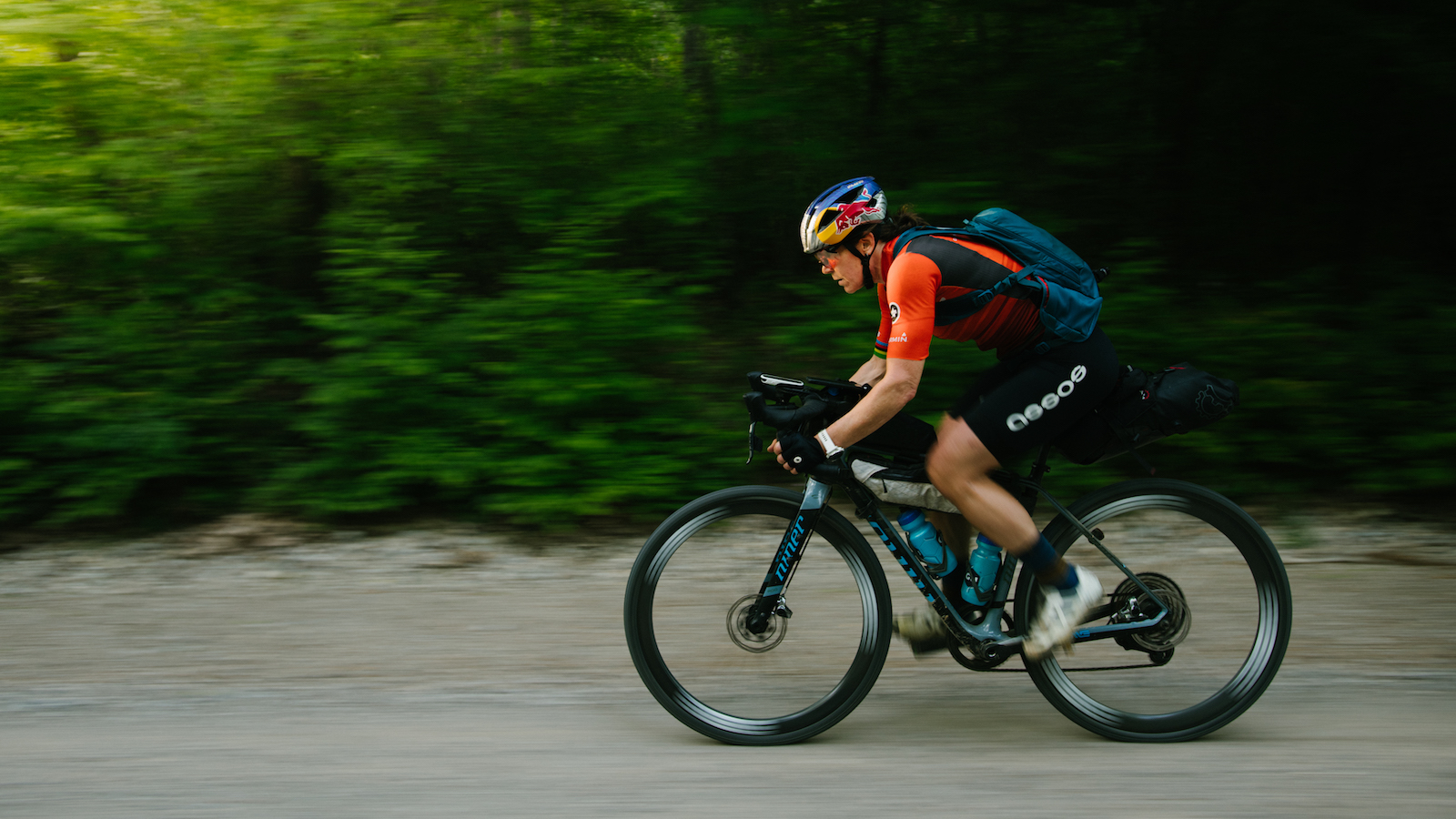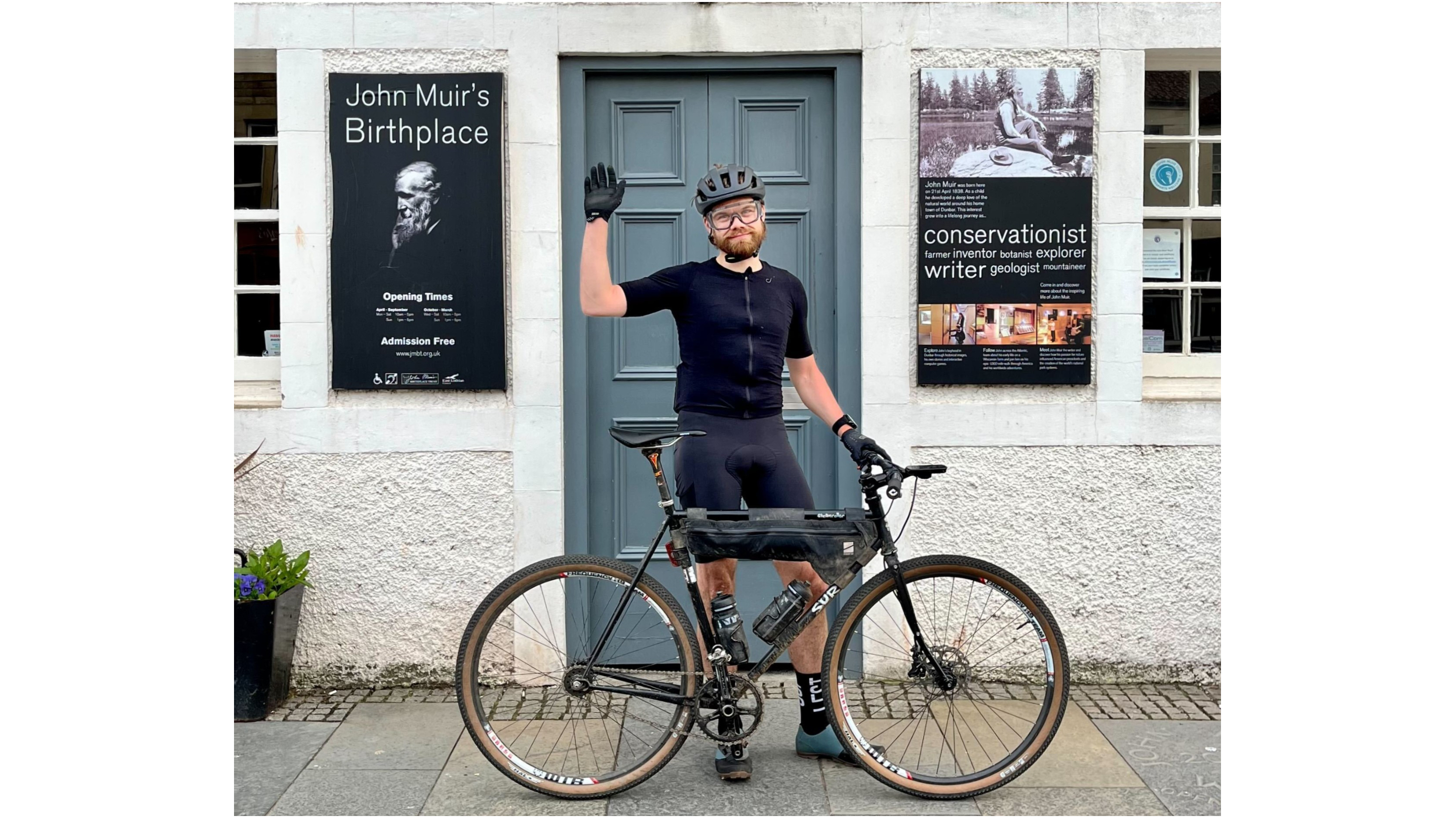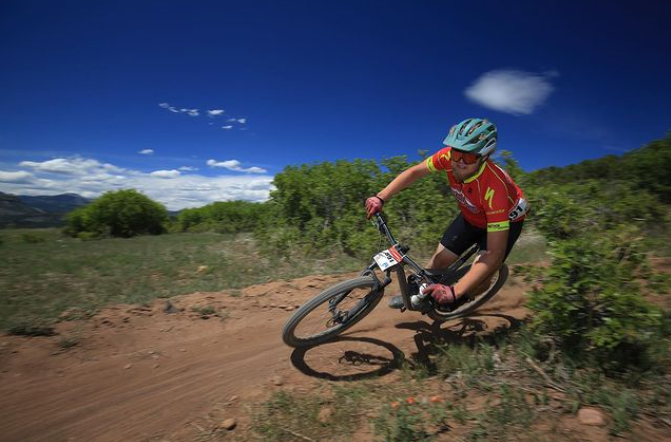Fastest Known Times – what are they and do they matter?
Fastest Known Times originated in trail running and have risen to popularity in mountain biking. We look at the background of attempting FKTs in MTB

Distance, speed and time are intimately familiar to any cyclist. One of the joys of riding a bike is that we can always push ourselves to go further and faster. That’s why fitness tracking apps—Strava, in particular—are so popular. Fans of motorsports know that there is an innate human fascination with speed, too.
In the pursuit of athletic achievement and brutal competition, it was only a matter of time before off-road cyclists started attempting to ride the longest, hardest routes on the planet as fast as possible. Routes like Utah’s White Rim, a remote, hot, and dusty 100-mile dirt road loop. Other routes traverse thousands of miles, like the Tour Divide race route, which follows part of North America’s Continental Divide from Banff, Canada to the U.S.-Mexico border.
Speed records set on these routes are known as Fastest Known Times, or FKTs. The FKT phenomenon has become more popular in recent years because of high-profile attempts as well as the COVID-19 pandemic shattering regular racing. Athletes have been setting and breaking FKTs for a long time, however, and the practice actually has roots in the sport of ultrarunning.
History of the Fastest Known Time
The term ‘fastest known time’ and the practice of keeping these records can be attributed to Buzz Burrell and Peter Bakwin. According to an article published by Trail Runner Magazine, Burrell set a speed record on the Colorado Trail in 1998, completing the trail on foot in 11 days 16 hours and 13 minutes. (Bakwin started the trail too but dropped out after 330 miles.)
The following year, the duo tackled California’s John Muir Trail, which travels 221 miles between Mount Whitney and Yosemite National Park. They completed the trail in 4 days and 9 hours, which they believed was the fastest time.
However, record-keeping of fastest times on long-distance trails was foggy and decentralized. Burrell started referring to records as fastest known times. The ‘known’ part of the term acknowledges that there could be faster times, but there’s no record of it. Bakwin began posting about FKTs online in what eventually became fastestknowntime.com, which is updated to this day.
For mountain biking and gravel riding, the history of FKT records is harder to trace, and there’s no official database for routes and times. However, the popularization of FKT record attempts in recent years is more clear-cut.
One of the most well-known off-road routes is the Great Divide MTB route which traverses the length of the Rocky Mountains. There is an organized race (called the Tour Divide) every year, which was documented in the 2011 documentary ‘Ride the Divide,’ but riders can also attempt the route solo too. The current men’s and women’s record holders are Mike Hall, who set a time of 13d:22h:51m in 2016, and Lael Wilcox, who set a time of 15:10:59 in 2015. Hall, a well-known and respected endurance cyclist, died in 2017 after being hit by a motorist during the Indian Pacific Wheel Race.
Another well-known effort came from Rebecca Rusch in 2013, when she set an FKT on the Kokopelli Trail, which travels 160-miles of remote desert terrain between Moab, Utah and western Colorado. Rusch’s time lasted until late last year when Kait Boyle set a new women’s record of 13 hours and 7 minutes.
A post shared by Keegan Swenson (@keegels99)
A photo posted by on
Recent popularity of Fastest Known Times
Despite these routes receiving publicity, FKTs in the cycling world were still a relatively underground scene composed of endurance racers and bikepackers. That is until 2019 when an FKT arms race of sorts erupted on the White Rim in Utah.
The White Rim is a rough dirt road that passes through Canyonlands National Park, just southwest of the famed mountain bike town of Utah. The road is so rough that most opt for full-suspension mountain bikes rather than hardtails or gravel bikes. Bikepackers complete the route in two or three days, taking in the desert scenery along the way, but some top athletes prefer to have a go at finishing the loop in just a handful of hours.
The reigning FKT was set by Andy Dorais in 2016, with a time of 5 hours, 59 minutes, and 34 seconds. A few years later, two-time U.S. XC Marathon National Champion Payson McElveen had his sights on setting a new benchmark time. That’s exactly what he did, and he put out a short film documenting the effort. Countless others then attempted the route, with the current men’s record being set by Keegan Swenson in March, coming in at 5:28:17. The current women’s record is held by Hannah Wood, who rode the loop in 6:51:45 in April.
When the COVID-19 pandemic hit, regular race calendars were shattered, bringing plenty of uncertainty to athletes who had no immediate goals to train for. In road cycling, riders took to everesting, in part because it’s a covid-safe solo effort. Riding hill repeats to gain the same elevation as Mount Everest wasn’t as appealing to mountain bikers, though some did complete the task on dirt. But off-road riders took to FKTs for similar reasons—they were safe goals to work toward during the pandemic.
We saw riders like Peter Stetina and Lachlan Morton set records on the White Rim and Kokopelli Trail, respectively, both of which have since been beaten. Stetina has recently attempted the Kokopelli trail, but is waiting to release his time in an accompanying video. A para-athlete FKT for the White Rim trail was also set last year.
Do Fastest Known Times matter?
Do FKTs matter? Most riders will never set a high-profile record, after all. And some riders or bikepackers will argue that record-setting is beyond the point and that they ride to enjoy the breathtaking landscapes that many of these routes travel.
People will always be interested in the peak of human performance. Riders pushing further and faster is objectively interesting. But there are other upsides to the current FKT madness too.
For pro riders, FKT attempts in the past year have been a lifeline to sustaining their career. With limited racing during the pandemic, it was an open question if sponsors would continue to support athletes and teams. FKTs not only provided a goal and motivation to train, but they also provided media coverage. Whether the efforts were posted on Strava, Instagram, YouTube, or all three, fans were engaged when riders made an attempt, which certainly keeps sponsors happy.
That’s one of the key elements of Morton’s EF Education-Nippo team, a top road squad that’s also looked toward ‘alternative’ mountain bike and gravel events to build its fanbase. Part of the team’s thought is that riding these types of events and broadcasting them to their supporters through online content, can help fans relate to pro riders through storytelling.

Amateur riders being able to relate to pro riders is the key. FKTs are massive efforts, but in the end, it’s all about athletes challenging themselves and overcoming adversity. FKTs are just like Strava, some love them and some would rather not pay attention. But if one rider is inspired to ride a new route or simply push to the top of a few more climbs on their home trails, then the job has been done.
Our very own Graham Cottingham is the current holder of two KFTs in his native Scotland – the 246km Capital Trail ridden in 14 hours, 10 minutes, and he recently completed the 212km John Muir Way in 9 hours and 25 minutes on a fixed gear bike.
Ryan Simonovich has been riding and racing for nearly a decade. He got his start as a cross-country mountain bike racer in California, where he cultivated his love for riding all types of bikes. Ryan eventually gravitated toward enduro and downhill racing but has also been found in the occasional road and cyclo-cross events. Today, he regularly rides the trails of Durango, Colorado, and is aiming to make a career out of chronicling the sport of cycling.
Rides: Santa Cruz Hightower, Specialized Tarmac SL4
- Rich OwenEditor, BikePerfect

